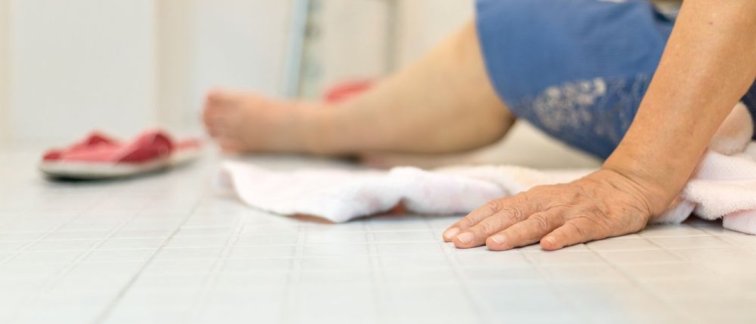In EenVandaag, APH researcher Nathalie van der Velde (Professor in Geriatrics at Amsterdam UMC) explains the need for change. In 10 years, the number of people dying from falls has nearly doubled to 5,400 by 2021. Among them are many over-80s and people with dementia.
Van der Velde states that falling is a public health problem that is understudied and underestimated. "In the Netherlands, 15 people die every day from the direct consequences of a fall. That is 7 times the number of people killed in traffic. People regularly sustain serious injuries from a fall and sometimes lose confidence in their own bodies or become anxious and no longer dare to go outside. Some people say, "Oh well, falling is part of life. But that's a misconception. You can often prevent a fall."
Watch the video of EenVandaag and read the full article (in Dutch) here.
Artificial Intelligence
Recently, doctors at the 'Valpoli' (part of the Department of Geriatrics) have been supported by software developed with artificial intelligence. The software can predict the chance of someone falling. One push of a button and the prediction will appear on the computer screen. “Then it reads, for example, that a patient has a 56 percent chance of falling in the coming year” says Nathalie van der Velde. "Especially with such a high figure, it is advisable to start the conversation with a patient. What medications is someone taking and are there side effects that make it more likely to fall?"
Tailored advice
Van der Velde is principal investigator of the ADFICE_IT study. In this study, doctors at the Valpoli use software developed with artificial intelligence. The software not only predicts the likelihood that a patient will fall, but also provides tailored advice that goes directly into the electronic patient record. That advice states which risk medications a patient is taking, what the side effects are and whether it is wise to continue with taking those. Van der Velde: "The system offers support, but the doctor and the patient decide." A trial has been running since early September and the study will officially start in early October 2022.
Safely reducing medication
In several patients medication was reduced with the support of the software. Joost van den Berg, colleague of Van der Velde, explains: “For example, there was a patient in her early seventies for whom the system predicted a high risk of falling. This was also due to medication she was taking to treat her manic depression and medication for her high blood pressure. Stopping the medication for the manic depression was not an option, as she had had bad experiences with it. In consultation with the patient and her cardiologist, we safely reduced the medication for her high blood pressure”.
Tangible gain
Van der Velde is in contact with 10 other hospitals in the Netherlands that will soon start using the software as well. At the same time, decision support will be developed for general practitioners. There is also international attention for the study, Van der Velde noticed last week at the European Geriatrics Congress in London. "There, the first World Guideline on Fall Prevention was launched, which I co-chair. The guideline emphasizes that fall prevention only works if it is done properly. Since that proves difficult in practice, smart data-driven decision support seems a promising approach."
The goal of the ADFICE_IT study is proving that this is actually the case. "If that happens, and I assume it will, people will fall less often. There will be fewer injuries and fewer people will die. Tangible gains for elderly patients; that's what we're doing it for."
Read the full article of Amsterdam UMC (in Dutch) here.

